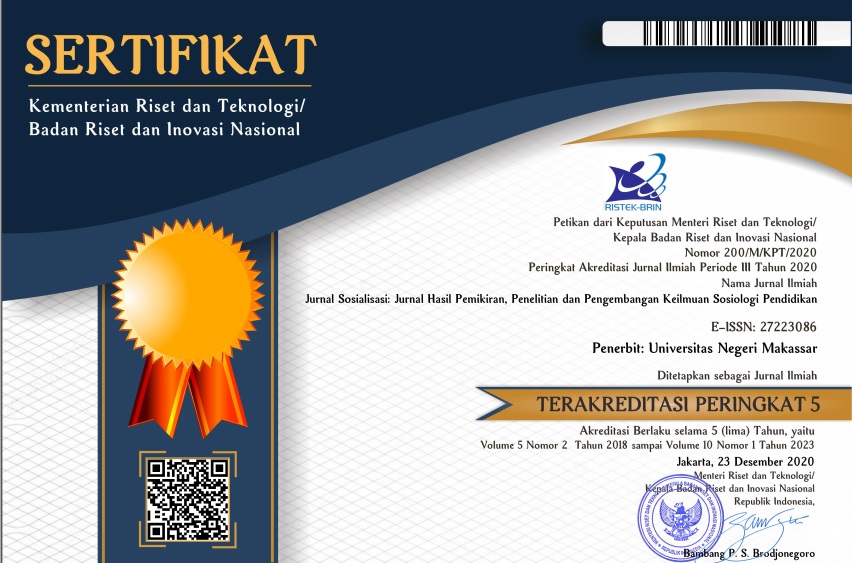State Power and the Common Good: A Critical Appraisal Of Robert Nozick’s Conception of the Minimal State
(1) University of Port Harcourt, Nigeria
(2) University of Port Harcourt
(*) Corresponding Author
DOI: https://doi.org/10.26858/sosialisasi.v1i1.33906
Abstract
Nigeria’s political leaders either do not understand the ends of the state or have derailed from them—the common good. As a result of this gap, they have resorted to breaches of the covenants under the social contract in pursuit of self-aggrandizements. What is more, the state rather monopolises coercive power and then proceeds to use this power arbitrarily, thereby violating the rights of citizens. It is in reaction to this that Robert Nozick proposed the minimal state as a paradigm for ensuring the common good and protecting the rights of citizens. The minimal state functions as a right watch man with the powers necessary to protect citizens. State power is a means to enhance the common good. It is the contention of this work that Nozick’s idea of anarchy appears utopian and betrays the hallowed principle of the rule of law in a democratic society. However, it is a directive framework to emphasise that the state exists to promote the common good of citizens and not for the personal aggrandisement of the custodians of the covenant that birthed the state.
Keywords
Full Text:
PDFArticle Metrics
Abstract view : 90 times | PDF view : 16 timesRefbacks
- There are currently no refbacks.

This work is licensed under a Creative Commons Attribution 4.0 International License.


































